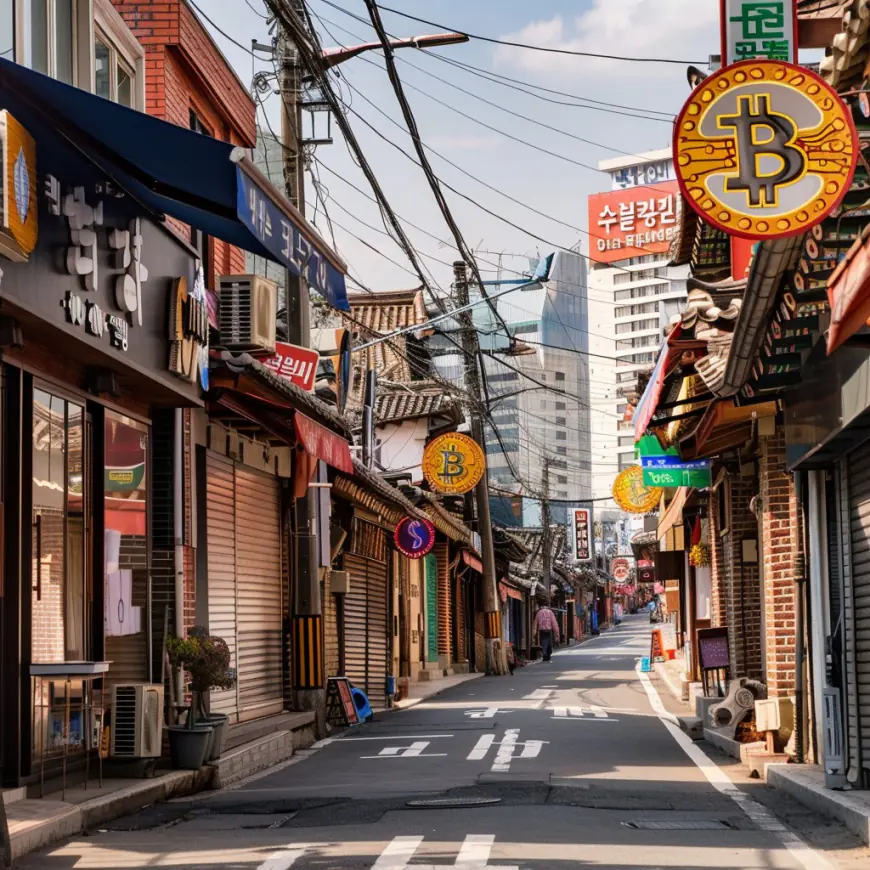South Korea’s N-Po generation finds hope in cryptocurrency
South Korea’s young adults, known as the “N-Po generation,” are turning to cryptocurrency as a source of hope and opportunity amidst economic challenges. This generation, aged 20-39, has faced hardships from the 1997 currency crisis, resulting in a fragile economy and societal pressures. The term “N-Po” reflects the abandonment felt by this generation due to […]

South Korea’s young adults, known as the “N-Po generation,” are turning to cryptocurrency as a source of hope and opportunity amidst economic challenges. This generation, aged 20-39, has faced hardships from the 1997 currency crisis, resulting in a fragile economy and societal pressures.
The term “N-Po” reflects the abandonment felt by this generation due to economic struggles, leading them to forgo traditional milestones like love, marriage, homeownership, and social activities.
Economic challenges and societal pressures
The N-Po generation’s struggles are rooted in a history of economic instability, foreign investment reliance, and rising housing prices, exacerbating the housing shortage. The term has evolved to encompass various subcategories, including the “Five-Po generation” and the “Seven-Po generation,” reflecting different sacrifices made by the youth.
Despite these challenges, South Korea is experiencing remarkable growth in its Web3 market. With over 200,000 active users, the market showcases significant activity, with approximately 15% trading on centralized exchanges. This surge in interest has led to a “Kimchi premium” for stocks listed on Korean digital currency exchanges, indicating a strong purchasing power.
Web3 as a new way of life
Young individuals in South Korea see Web3 technology as an opportunity to break through adversity. The N-Po generation, driven by a belief in their ability to overcome challenges, invests in high-risk assets, seeking a turnaround. A shift in the government’s approach towards the digital currency market is evident, with initiatives like the pilot launch of a central bank digital currency (CBDC) and efforts to establish legislation for security token offerings (STOs).
With limited avenues for legitimate income, South Koreans, known for their adventurous spirit, are turning to online platforms for financial opportunities. Cryptocurrency gambling, particularly in altcoins and meme coins, has seen a surge, reflecting the societal constraints and the influence of the internet. Altcoin investments are favored over Bitcoin and Ether, with opinion leaders in KOL Telegram communities playing a significant role in shaping consumer behavior.
Influential opinion leaders and community dynamics
Opinion leaders hold substantial influence, with KOL Telegram communities ranging from 2,000 to 200,000 members. Despite skepticism towards mainstream media, these communities play a pivotal role in shaping consumer behavior.
Good opinion leaders have a buying base of community members, giving feedback to projects and maintaining a balanced approach to airdropping. Recognition by reputable opinion leaders is crucial for cryptocurrency projects, as large communities with genuine members often have strong purchasing power.
Fervor among crypto enthusiasts
While the overall tone in South Korea may lean towards pessimism, there is still enthusiasm among crypto enthusiasts to find opportunities during societal challenges. Despite the hardships faced by the N-Po generation, the digital currency market provides them with hope and the potential for financial growth.
What's Your Reaction?









































































































